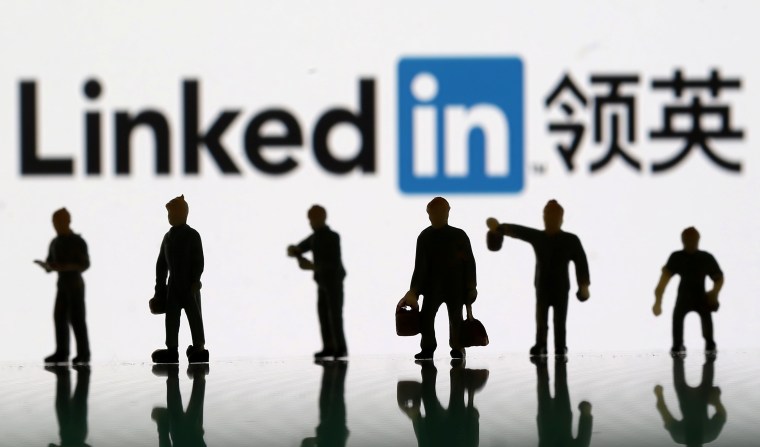Washington, D.C., October 6, 2021 — LinkedIn should immediately restore journalists’ blocked profiles in China, be transparent about the process that leads to profile takedowns, and ensure that the company does not facilitate the global export of Chinese censorship of reporters, the Committee to Protect Journalists said today.
LinkedIn blocked the profiles of several U.S. journalists from the company’s China-based platform in September, according to news reports and tweets by some of those affected. Bethany Allen-Ebrahimian, a reporter on China for the news website Axios, and freelance writer Melissa Chan posted on Twitter that they received emails from LinkedIn stating that their public profiles would no longer be viewable in China due to the presence of “prohibited content.”
The messages did not indicate what content was prohibited and which legal authority deemed it so, instead only referencing the sections in which the allegedly prohibited content appeared. While the profiles were taken down in China, the LinkedIn notice shared by Allen-Ebrahimian said they will remain visible in the rest of the world. The messages added that the company would review the profiles’ accessibility in China if the journalists updated specified sections, noting that the decision to update “is yours.”
“By asking journalists to amend content that may reference subjects seen as ‘sensitive’ to the Chinese Communist Party in order to regain access to the Chinese version of LinkedIn, the company is facilitating the export of Chinese censorship of journalists globally,” said CPJ Program Coordinator Carlos Martinez de la Serna. “LinkedIn should not be playing a part in China’s drive to control dialogue around certain topics, but should instead be doing everything it can to push back against such mandates based on their obligations under business and human rights principles.”
The first widely reported case of profile blocking by LinkedIn, which is owned by Microsoft, was when Chinese human rights activist Fengsuo Zhou tweeted in January 2019 that he’d received correspondence from LinkedIn saying his profile had been taken down. In March 2021, the New York Times reported that LinkedIn was sanctioned by Chinese internet regulators for allegedly failing to control political content, requiring the company to suspend new sign-ups for 30 days and to submit a self-evaluation report to authorities. In recent months, a number of China analysts have reported that their profiles were also removed from LinkedIn’s China platform.
LinkedIn did not immediately respond to CPJ’s emailed requests for comment and questions on whether the profile blocks were initiated by LinkedIn based on an internal list of prohibited topics or whether Chinese authorities requested that certain profiles be scrubbed from the local version of the platform. In September, LinkedIn told Axios in a statement that it was “a global platform that respects the laws that apply to us, including adhering to Chinese government regulations for our localized version of LinkedIn in China.”
In a Zoom interview with CPJ, Allen-Ebrahimian—who Chinese authorities had previously refused a journalist visa—said she would not change her profile, even though she realized that this could affect her journalistic work in China. Allen-Ebrahimian said that a number of other people have reached out to her since posting about her experience on Twitter to say that they had had their profiles taken down in China as well.
Chan also told CPJ that she would not be changing her profile. In a phone interview via Signal, she said that she has been the subject of online abuse and disinformation campaigns since China’s refusal to renew her visa—likely in response to her reporting—forced her to leave Beijing in 2012. “In the grand scheme of intimidation I’ve faced, this (profile removal) is a relatively small infraction,” she said.
After the publication of this article, on October 14, LinkedIn announced that it would close the China-specific version of its social networking service, citing “a significantly more challenging operating environment and greater compliance requirements in China.”
[Editors’ note: This article has been updated in its last paragraph to include LinkedIn’s announcement.]
